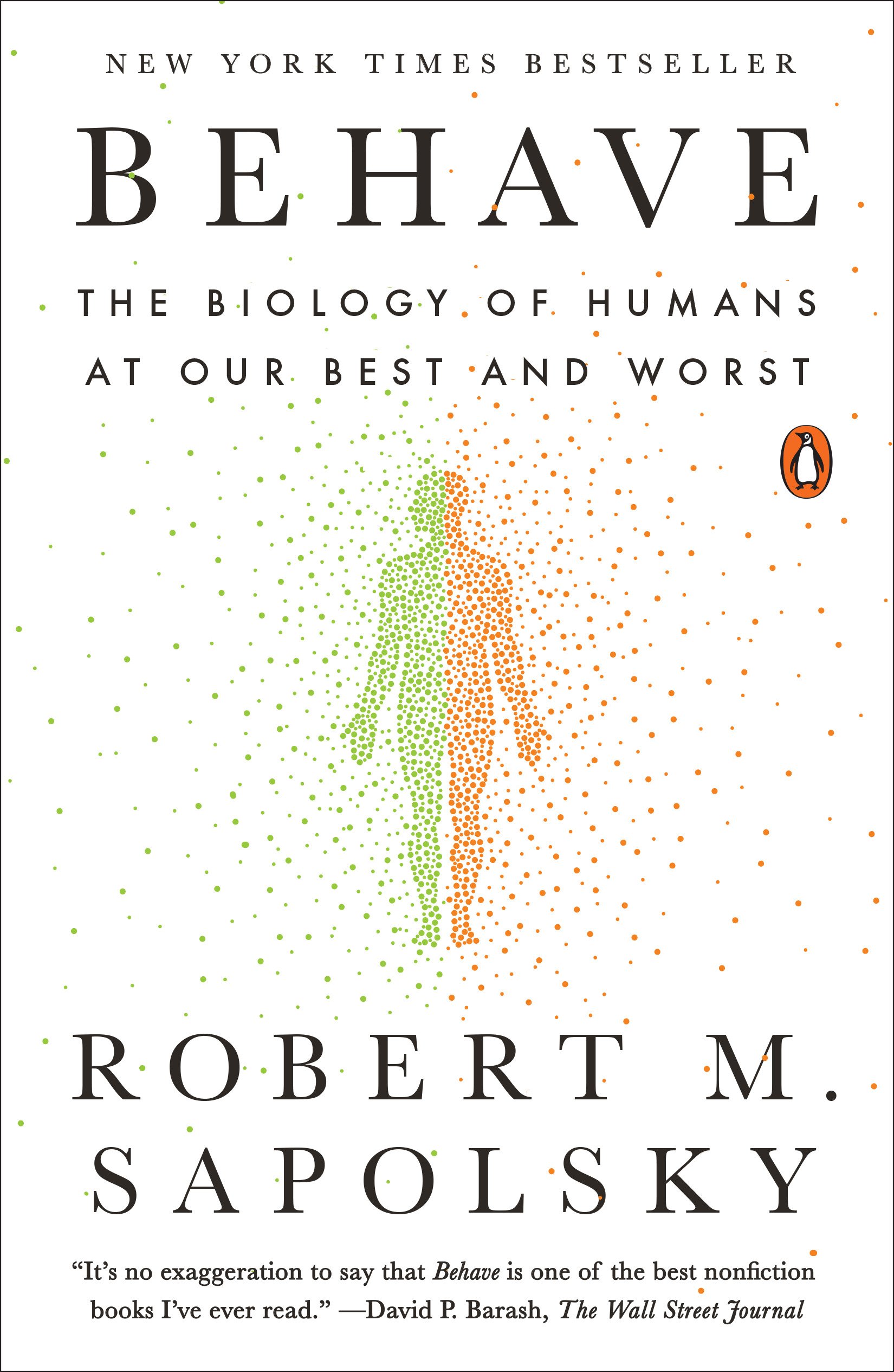Book Review: Behave
Published:
I’m utterly floored. Robert Sapolsky’s Behave has achieved two firsts among biology textbooks: 1) providing a sweeping, meticulously researched account of human nature, and 2) keeping me thoroughly entertained the entire time. This landscape of a book took three weeks to trek through and I don’t regret a minute of it.

Utility: ⭐⭐⭐⭐⭐ (5/5)
Writing: ⭐⭐⭐⭐⭐ (5/5)
Here’s the paperback and audiobook.
Sapolsky’s writing style is clear and funny. I always got a little excited whenever I turned the page and saw a footnote ahead (a sure sign of either a fun factoid or an offhand joke). The book is replete with helpful diagrams, perfect analogies, and refreshers of past content. After spending ten chapters of technical background, the book signs off with fascinating commentary on the ills of modern society and what we might do about it. It feels like the perfect biology class that I never had (sorry Mrs. Duval!).
Of course, the narration occasionally gets a little bogged down in abbreviations and technical details. Nevertheless, Sapolsky is a master of keeping everything in context. Every fact has an immediate, practical implication, and it’s worth digesting all of them. A word of advice: if the book ever feels “too much,” pick it back up tomorrow or try burrowing around in the appendix.
Notes
Since there’s no way in hell that I was ever going to take notes on the entire book (it’s so concise that it would be pointless anyway), here are my key takeaways:
- Humans are complicated. Rarely can any set of genes or environmental factors predict behaviors. The best we can hope for is to talk in terms of averages.
- Biological factors don’t cause behavior. Instead, they interact with the environment, making us more susceptible to certain stimuli. One example is the way certain genes and childhood trauma interact to cause depression. Of course, this also means genes can have different effects in different environments.
- Humans divide the world into Us and Them. Our instinct is to favor the former. Politicians like to dehumanize the latter. Hormones like oxytocin can cause us to care for Us while increasing hatred for Them.
- Humans are neither a pair-bonding species nor a tournament species. Patriarchy isn’t an inevitability, but gender parity isn’t hardwired either. It manifests as confusion and conflict in our social lives.
- Neither moral cognition nor empathy necessarily translate into ethical action. Some of the worst atrocities in history arise from rationalized exceptionalism. And of course, empathy can go horribly wrong when framed by Us versus Them dichotomies.
Please, please, give this book a read.
